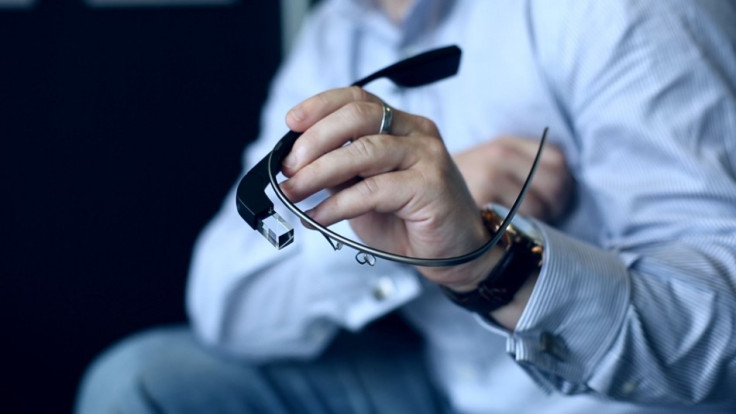Google Patent Hints at Pay-Per-Gaze Ads on Glass
Google has been granted a patent for a "gaze tracking system" which it could use on its Glass product to sell ads.

The patent granted to Google has once again raised some privacy concerns around Glass with one privacy cmapaigner likening the technologoy to something seen in the film Minority Report.
The patent, granted to Google on Tuesday does not explicitly mention Google Glass but it does say the "gaze tracking system" requires a "head mounted gaze tracking device" which "comprises eyeglasses" and includes "side-arms that engage ears of the user... lenses through which the user views the external scenes, wherein the scene images are captured in real-time" as well as "at least one forward facing scene camera." In other words, Google Glass.
According to the patent, the user's pupil dilation will be tracked with the data fed directly back to Google's server.
The patent states that any user-related personal data would be eliminated but will be "provided to the advertisers as anonymous analytics." The patent further adds:
"Inferred emotional state"
"The inferred emotional state information can be provided to an advertiser so that the advertisers can guage the success of their advertising campaign."
however this latest patent has raised the ire of a UK privacy advocate. Nick Pickles, director of Big Brother Watch, told the Telegraph: "It's shocking to think that people who will be buying George Glass may end up having their own eyeballs monitored by Google. This is the kind of monitoring you would expect in a science fiction film. It's Minority Report for profit."
The news comes in the same week that Google came under fire for admitting that non-Gmail users had no right to expect privacy in relation to emails sent to Google's mail servers.
A Google spokesperson responded to questions about what the patent may be used for: "We hold patents on a variety of ideas. Some of those ideas later mature into real products or services, some don't. Prospective product announcements should not necessarily be inferred from our patents."
© Copyright IBTimes 2025. All rights reserved.






















